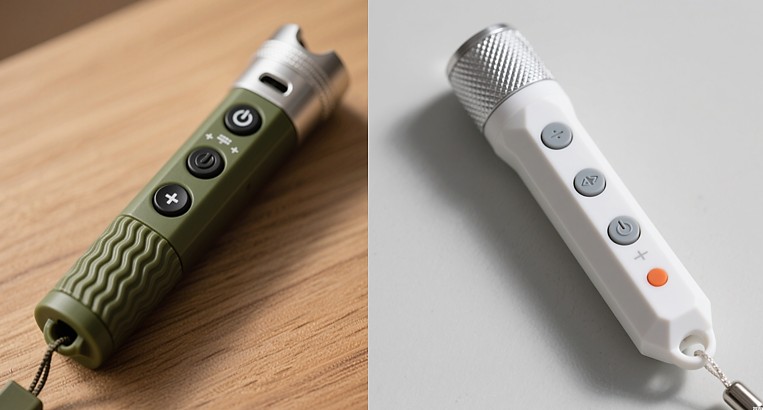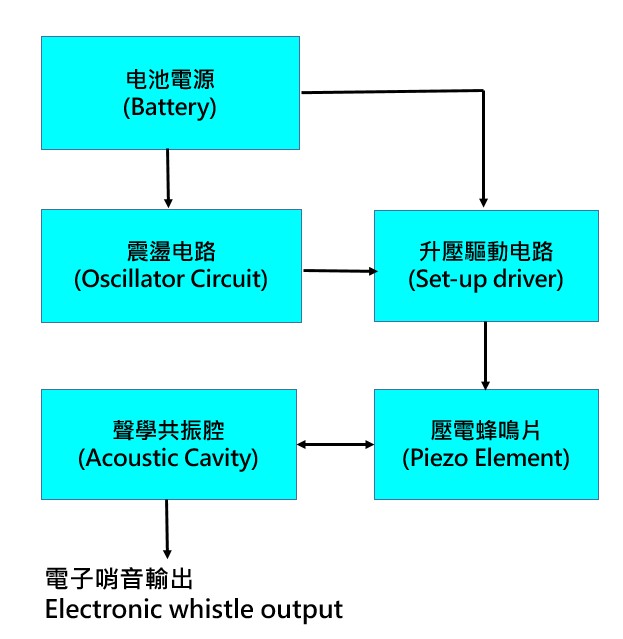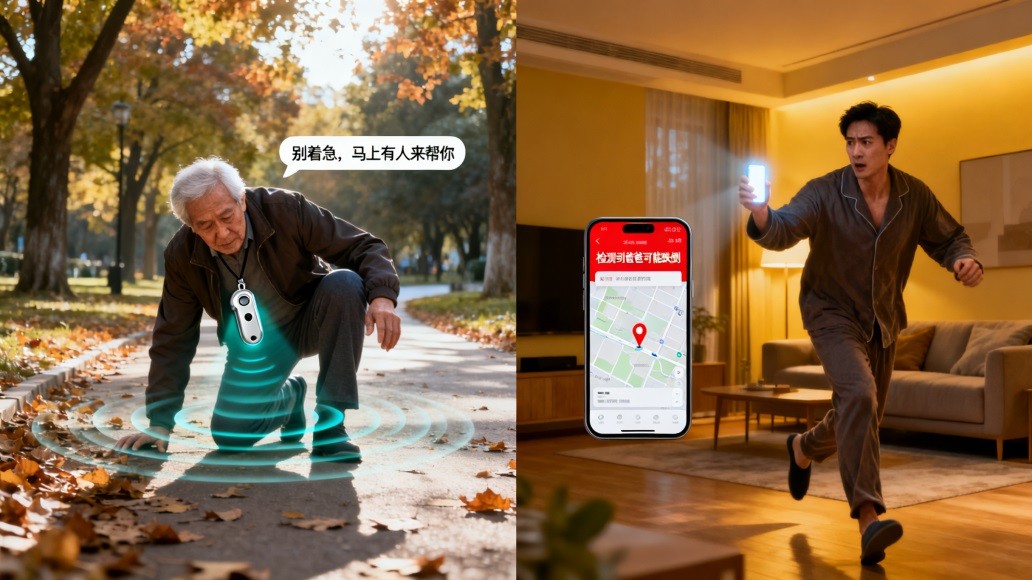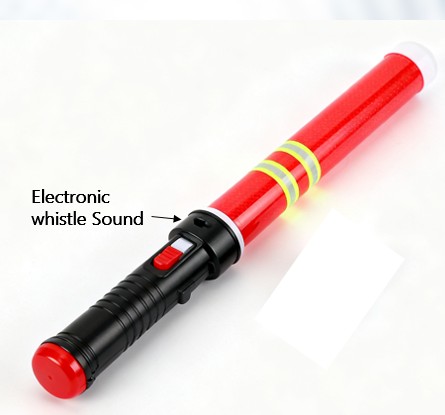Technical Article
-
The Rise of the Electronic Whistle: A Safe and Smart Sound Solution in the Post-Pandemic Era
1. The Role and Applications of Traditional Whistles
Whistles have long been an essential acoustic signaling tool throughout human history, valued for their loud, sharp, and penetrating tones. They are widely used in traffic control, sports refereeing, lifeguard supervision, and personal safety alerts, serving as an immediate means of warning and communication.
The working principle of a traditional whistle is simple—air blown through a narrow slit creates vibrations within a resonance chamber, generating sound waves. The pitch and tone depend on the chamber’s geometry and the air path design. Due to their simplicity, portability, and clarity, traditional whistles have become a standard piece of equipment for police officers, firefighters, coaches, and outdoor enthusiasts worldwide.
However, blowing through a whistle introduces hygiene and safety risks, especially in enclosed or crowded environments. Airflow and saliva droplets generated during use can increase the likelihood of infection transmission.
2. Rethinking Hygiene During the COVID-19 Pandemic
The global COVID-19 outbreak in 2020 prompted society to reevaluate many daily behaviors through the lens of hygiene and safety. Since the virus can spread via droplets and aerosols, the conventional practice of blowing a whistle became a high-risk activity. Shared whistles or those used in group settings, such as schools, police drills, and sports events, posed a particular threat of cross-infection.
To maintain the benefits of acoustic signaling while eliminating the risk of droplet transmission, demand surged for non-contact whistle alternatives. The Electronic Whistle emerged as a timely innovation.
Unlike traditional whistles, electronic whistles use circuitry to generate a loud, consistent tone at the press of a button—no blowing required. This design ensures a contact-free, hygienic, and reliable warning sound that can be used safely even when wearing masks or working under harsh environmental conditions.
(See Fig.1 for the product appearance and Fig.2 for the waveform.)
Fig.1 for the product appearance

Fig.2 for the waveform
3. Technical Principles and Structural Overview
The core innovation of an electronic whistle lies in replacing pneumatic sound generation with electro-acoustic conversion, resulting in more stable and controllable output. A typical electronic whistle consists of the following modules:
Power Supply: Operates on dry or rechargeable lithium batteries for extended use and instant activation.
Oscillator Circuit: An IC generates square- or sawtooth-wave signals at fixed frequencies to simulate traditional whistle spectra.
Step-Up Driver: Boosts the voltage to drive the piezoelectric element and achieve sufficient sound pressure.
Piezo Element: Converts alternating voltage mechanical vibration through the piezoelectric effect, producing high-frequency sound.
Acoustic Cavity: Amplifies and directs the sound output for better tone clarity and projection.
With these components, an electronic whistle delivers a clear, reproducible tone with strong penetration—without any need for airflow. Advanced models may allow frequency and volume adjustments to suit different environments.
(Refer to Fig.3: System Block Diagram.)
Fig.3: System Block Diagram
4. Advantages and Value of Electronic Whistles
The foremost advantage of electronic whistles is hygiene and safety. A single-button operation eliminates mouth contact and droplet spread, minimizing infection risks.
Applications include:
School physical education and sports refereeing
Law enforcement and traffic control
Firefighting and lifeguard training
Personal safety and emergency alerting
Additionally, electronic whistles deliver consistent performance—their output is unaffected by user lung capacity, humidity, or weather. Many models also feature water- and dust-resistant designs, low-power operation, and long-life switches, making them ideal for outdoor and professional use.
5. Extended Application: Design for Elderly and Dementia Care
For elderly users—especially those with cognitive decline—an electronic whistle can evolve a smart safety companion. Design must address both the user’s limitations (memory loss, sensory decline, mobility issues) and the caregiver’s needs (ease of use, reliability, and timely response). The following design principles ensure usability and safety across eight core dimensions:
(A) Cognitive and Operational Adaptation
Zero-learning interface: Replace complex controls with a single large, textured button (≥2 cm diameter).
No setup required: Family members can link the device by scanning a QR code; auto-activates in “guardian mode.”
Intuitive feedback: Replace LED indicators with familiar voice prompts (“I’ve contacted your son”) to reduce confusion.
(B) Physical Adaptation
Vision & touch-friendly: No display; use voice and vibration for feedback. Button includes tactile markings.
Hearing & mobility support: Emit lower-frequency tones (500–800 Hz) audible to elderly ears; volume adjustable up to 80 dB. Lightweight (< 15 g) and attachable to canes, clothing, or keychains.
(C) Core Safety Functions
Anti-wandering: Bluetooth beacons for indoor tracking (±1 m) and low-power 4G GPS outdoors (≤ 5 m).
Fall detection: Uses millimeter-wave radar + AI models (YOLO v9 + OpenPose) to reduce false alarms; delivers calm voice reassurance before alerting caregivers.
Emergency alert: Long-press for 2 seconds to trigger help; automatically prioritizes alerts to family or medical services.
This smart electronic whistle transforms “sound for warning” “sound for protection.”
(See Fig.4a & Fig.4b: Elderly Whistle Applications.)
Fig.4a: Elderly Whistle Applications

Fig.4b: Elderly Whistle Applications
6. Market Growth and Diversification in the Post-Pandemic Era
Rather than fading after COVID-19, electronic whistles have gained long-term market momentum. Heightened awareness of hygiene, safety, and efficiency across industries continues to drive adoption. The product has evolved from a temporary pandemic solution to a modern, professional acoustic signaling device.
Emerging variants include:
Multi-tone models (metal, plastic, bird-call simulation)
Multi-function models (integrated flashlight, strobe, USB charging, SOS alert)
Smart control models (MCU-based adjustable tone, auto power-saving, and volume control)
7. Kingstate Electronics — Your Professional Acoustic Design Partner
Kingstate Electronics has decades of expertise in electro-acoustic component design and manufacturing, offering a full range of products, including piezo buzzers, sound modules, acoustic sensors, and driver circuits. Leveraging advanced acoustic simulation and precision measurement capabilities, Kingstate develops customized electronic whistle solutions—from basic single-tone models to integrated multifunctional systems.
Even traffic batons can incorporate electronic whistle sounds to achieve combined light-and-sound warning effects.
(See Fig.5: Customized Light & Sound Integration Example.)
Fig.5: Customized Light & Sound Integration Example
Our engineering capabilities include:
Customized tone and frequency design
Acoustic cavity simulation and optimization
Integrated solution development (lighting, sensing, wireless control)
Certification and EMC test consulting
Kingstate is more than a supplier—we are your technical partner in electro-acoustic innovation.
We believe every sound can be designed to be safer, smarter, and more impactful.For collaboration or custom development inquiries, please contact us via info@kingstate.com.tw
.
Kingstate’s R&D team is ready to provide flexible, high-quality acoustic solutions tailored to your needs.

 RFQ
RFQ